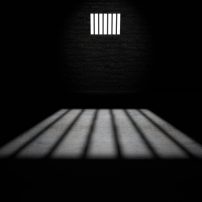
Prohibition of an inmate for communication with his inmates! Conviction for inhuman and degrading treatment!
JUDGMENT
Ivan Karpenko v. Ukraine 16.12.2021 (app. no. 45397/13)
SUMMARY
European prison rules, adequate level of human and social interaction.
The applicant is a detainee serving a life sentence in a detention center in Ukraine. The prison authorities imposed complete isolation in his cell with no possibility of any communication with his inmates. He appealed against the above isolation and the detention conditions.
The Court found conditions that aggravated his mental health, such as the applicant being permanently confined to his cell, the possibility of only a short outdoor walk, a ban on activities, the long duration of non-communication (over 10 years), and the absence of an adequate response to complaints and his requests. It considered that the measures in question had been unjustifiably extended to the applicant despite the change in national law.
The ECtHR found inhuman and degrading treatment (Article 3) against the detained applicant and that he had no legal remedy to terminate the inhumane conditions of detention and to be compensated (Article 13 in conjunction with Article 3). He also awarded 5,000 euros for non-pecuniary damage and 3,000 euros for costs.
PROVISIONS
Article 3
Article 13
PRINCIPAL FACTS
The applicant, Ivan Ivanovych Karpenko, is a Ukrainian national who was born in 1973 and is
imprisoned in Romny Prison no. 56 (Ukraine). He has been serving a life sentence since 2004.
On 13 June 2009 Mr Karpenko greeted a fellow prisoner during a walk in the prison yard. A guard
remarked to them that contact was prohibited and reported the incident to the prison management.
Mr Karpenko was formally disciplined (“given a warning”) as a result.
Mr Karpenko lodged an administrative complaint, which was rejected by courts at two instances
owing to lack of jurisdiction. A subsequent appeal on points of law was dismissed by the Higher
Administrative Court.
The applicant took the prison to the civil courts, seeking to have the disciplinary measure declared
unlawful, and claiming compensation. That suit was rejected at first instance and on appeal again for
lack of jurisdiction with Mr Karpenko being denied permission to lodge an appeal on points of law.
The applicant unsuccessfully complained on at least thirteen occasions between 2009 and 2017 of
the deterioration of his physical and mental health on account of the lack of contact with other
prisoners, seeking medical and psychological treatment in that regard. He also unsuccessfully sought
access to vocational training.
Relying on Article 3 (prohibition of inhuman and degrading treatment) and Article 13 (right to an
effective remedy) in conjunction with Article 3, Article 8 (right to respect for private life) and Article
6 § 1 (right to a fair trial), the applicant complained of the permanent prohibition on his having
contact with inmates from other cells, and that there was no effective remedy for his complaint.
THE DECISION OF THE COURT…
Article 3
The Court noted that the legal basis for the ban on communicating with fellow inmates had been
repealed in 2015. Nevertheless, the ban had been applied to the applicant for at least ten years prior
the repeal and possibly had continued to be applied also after that time.
At root, the conditions under which he had been held had amounted to systematic segregation.
Preventing inmates from talking to each other amounted to a breach of the European Prison Rules,
denying him “an adequate level of human and social interaction”.
The Court found the following to be exacerbating factors: the applicant’s almost permanent
confinement to his cell, with only a brief outdoor walk and without any purposeful activities; the
ban’s being automatic solely on the basis of his sentence, without any possibility of review; the long
duration of the measure in question; and the deterioration of the applicant’s health and the absence
of any adequate response to his related complaints and requests for assistance.
Overall, the Court considered that the ban on the applicant’s communication with prisoners from
other cells, alongside the other factors mentioned, had amounted to inhuman and degrading
treatment in breach of the Convention.
Other articles
The Court observed that the domestic courts had declined jurisdiction in respect of his complaints
concerning the ban, which was unfortunately typical in Ukrainian case-law. It considered that the
applicant thus had no remedy available to him, leading to a violation of Article 13 taken in
conjunction with Article 3. The Court also noted that the 2015 legislative amendments appeared to
have opened up the possibility for prisoners serving life sentences to challenge the lawfulness of any
disciplinary sanctions imposed on them in relation to the ban and held that it would expect life
prisoners to introduce such complaints in accordance with the amended regulations.
Given its other findings, the Court held that it was not necessary to examine the complaints under Articles 8 and 6 § 1.
Just satisfaction (Article 41)
The Court held that Ukraine was to pay the applicant 5,000 euros (EUR) in respect of non-pecuniary
damage and EUR 3,000 in respect of costs and expenses.


